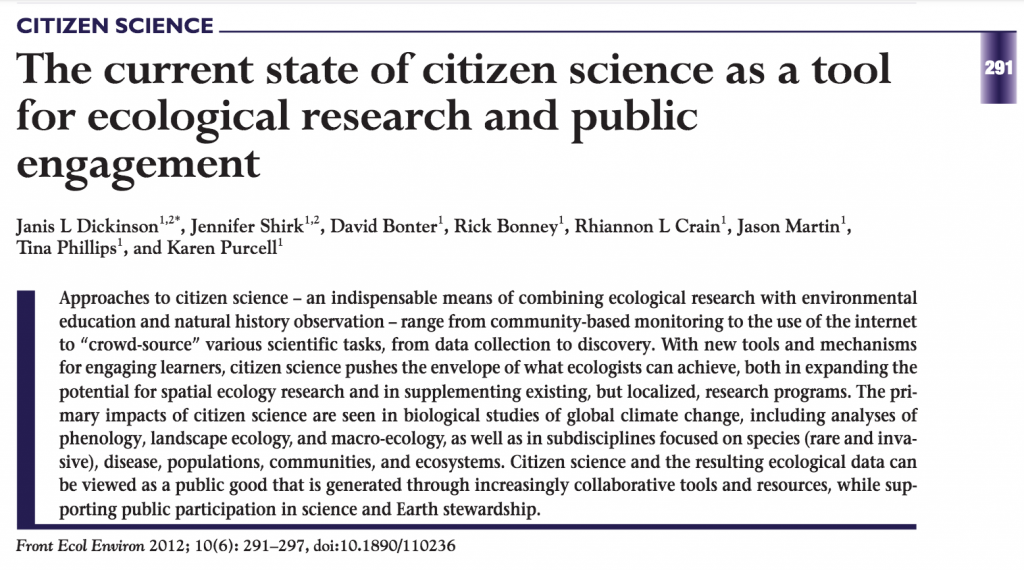COASST has been recognized in the citizen science edition of the online journal “Frontiers in Ecology and the Environment”.
Here is what they have to say about us:
Citizen science engages non-professionals in authentic scientific research, ranging from long-standing, large-scale projects like the Breeding Bird Survey to the more personalized research experiences offered by the Earthwatch Institute. The combination of historical data and assembly of a large, dispersed team of observers creates opportunities for ecological research at unprecedented spatial and temporal scales. Many ecologically based citizen-science projects collect important baseline data, which positions them to respond to crises such as the 2010 Deepwater Horizon oil spill in the Gulf of Mexico. Other projects routinely monitor mortality in a particular population or species, helping to identify threats to native species and to people (eg Coastal Observation and Seabird Survey Team [COASST]). Dispersed data collection and the ability to collect observations and connect with people, in places, and at scales that would otherwise not be possible, render citizen science increasingly important to environmental research.
Today, the internet and geographic information system-(GIS-) enabled web applications allow participants to collect large volumes of location-based ecological data and submit them electronically to centralized databases. The ubiquity of smartphones, the potential for digital photo validation of questionable observations (eg COASST; WebTable 1), and the development of infrastructure for creating simple online data-entry systems (eg www.citsci.org; Table 1) provide added potential for initiating projects quickly, inexpensively, and with stringent criteria to ensure data accuracy. These same web-based tools are democratizing project development, allowing for the creation of data-entry systems for community-based projects that arise out of local, practical issues or needs (eg Extreme Citizen Science; WebTable 1). Although we cannot currently assess the impact of this democratization for ecological research, such empowerment means that resource management decisions, and the data that drive them, are more likely to be in the hands of the people who will be affected by the outcomes.

